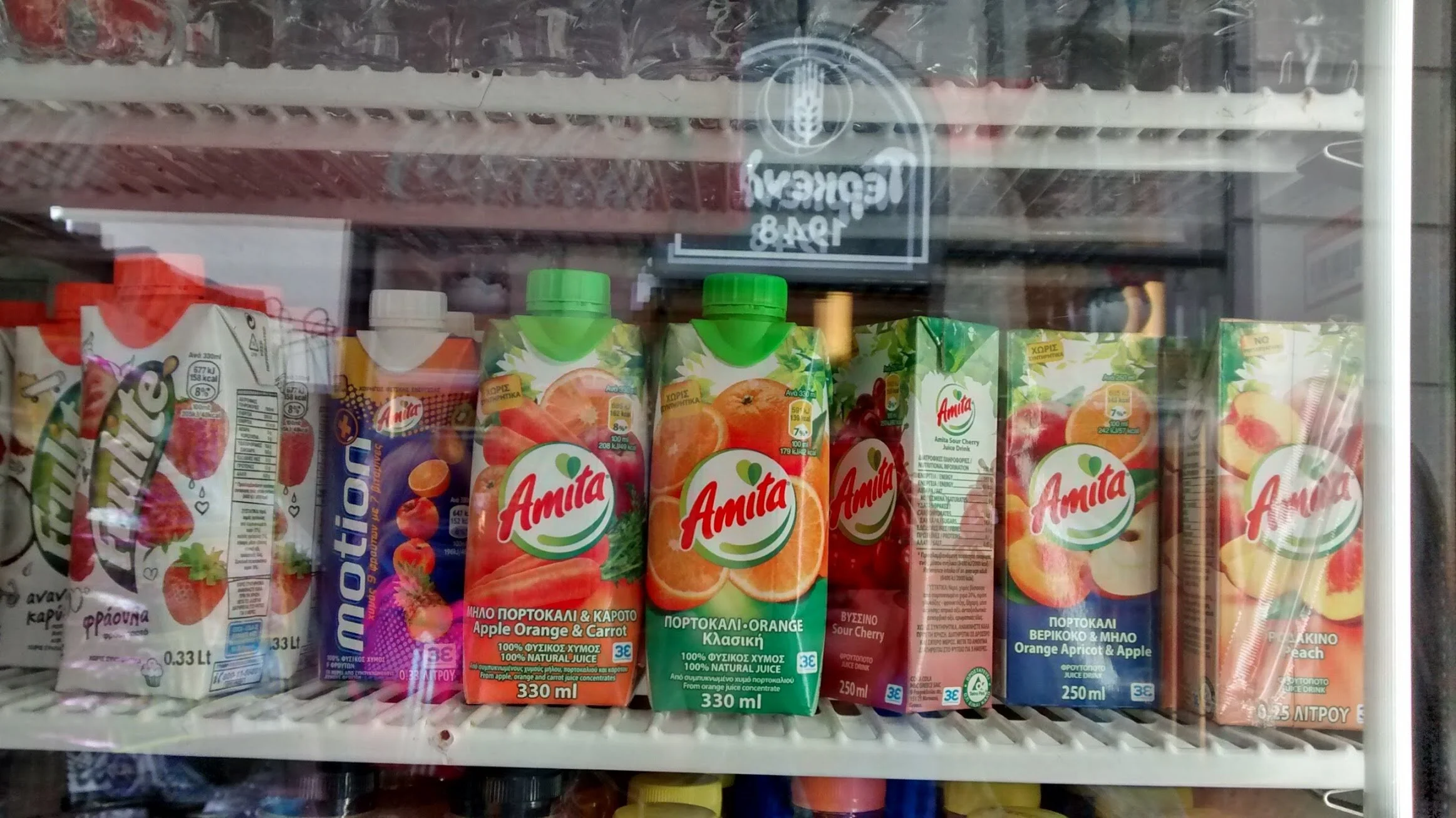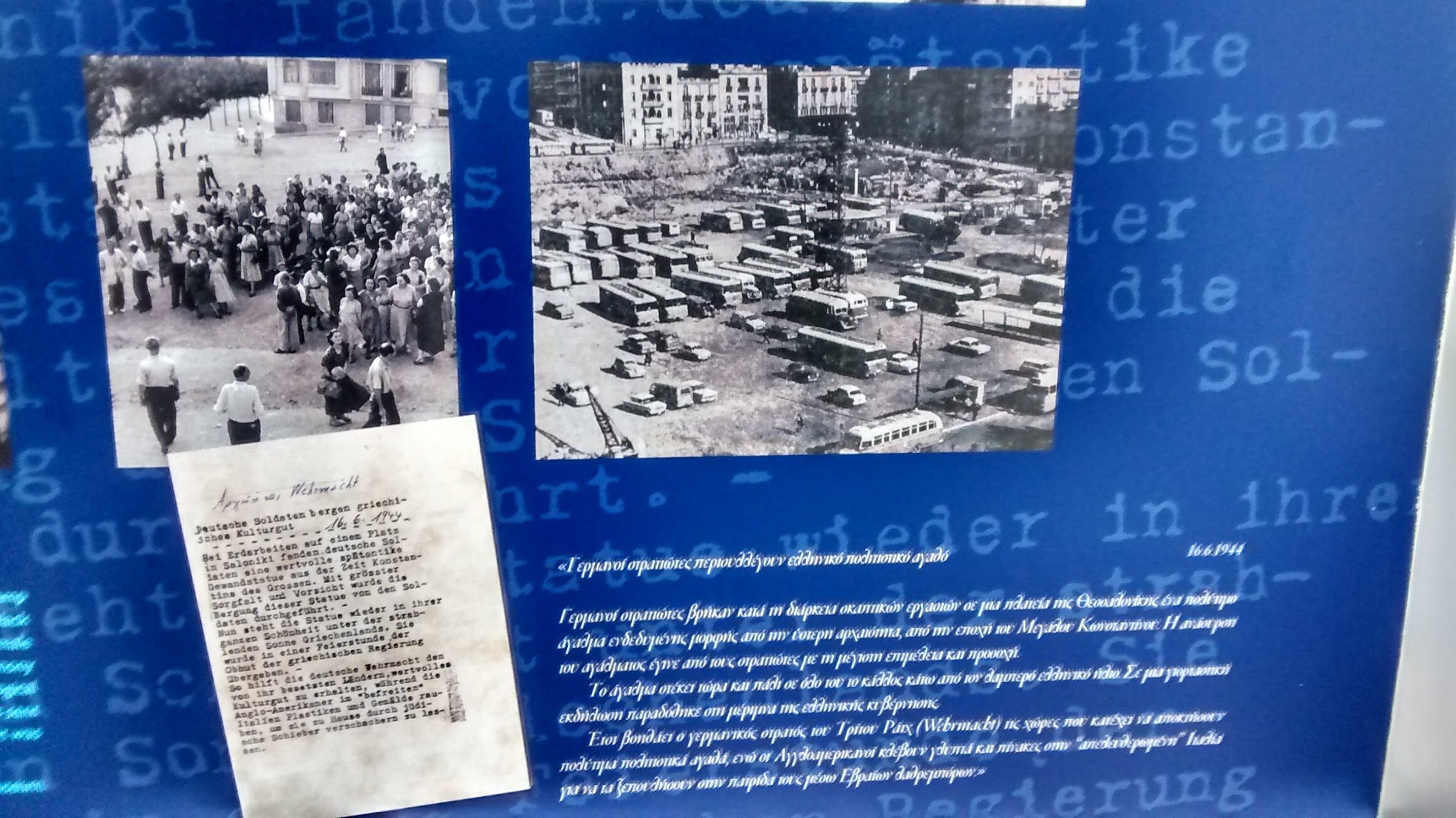The Circus Train book research trip to Thessaloniki
I thought I would start writing about how I got the idea for my debut historical fiction novel, ‘The Circus Train’ and what the process of writing it was like. I’ve always loved reading about how authors got ideas for their books and their subsequent writing process.
My phone reminded me this morning that it’s been six years (!!!!!) since I hopped a cheap flight to Thessaloniki to learn more about the history of the city where much of my novel used to be set. In the spirit of celebrating this whole book journey, I decided to commemorate the trip with this post.
Bear with me - my memory is a little fuzzy and I’ve never been one for the latest phone technology as you’ll soon see from the photos. But I hope you enjoy this inside look of how ‘The Circus Train’ started to come together:
A brief intro to Thessaloniki:
Thessaloniki (sometimes called Thessalonica or Salonika) is the second largest city in Greece. Founded in 315 BC by Cassander of Macedon, it was named after his wife, Thessalonike, daughter of Philip II of Macedon and half-sister to Alexander the Great. Her name means "Thessalian victory", honouring the Macedonian victory at the Battle of Crocus Field.
When I began writing ‘The Circus Train’, most of it was set in Thessaloniki. The idea for the novel came to me when I was reading a non-fiction book about Greece’s involvement in the Second World War. Thessaloniki used to have a huge Jewish population. To avoid persecution, Sephardi Jews began fleeing Spain in 1492, seeking asylum in the Ottoman Empire. One of the places they settled was Thessaloniki, where they built a thriving community for themselves, overcoming much adversity. Sadly, about 96% of the Jewish population was wiped out during the German occupation of Greece during the Second World War.
I’d chanced upon a story about Archbishop Damaskinos of Athens, a powerful figure in Greece, who publicly denounced the deportation of Jews from his country. In a letter he wrote to the Germans, he added a biblical quote: “There is neither Jew nor Greek”, preferring to look at people as humans rather than divide them based on their religious beliefs. Despite this, the Germans continued deporting Jews from Thessaloniki to transit and concentration camps. So Damaskinos ordered the church to start issuing false identity cards to Jews in order to save them. Reading about what he’d risked to save them was the initial spark for my novel.
Thessaloniki has a fantastic Jewish museum and although I’d been corresponding with them via email for research, I wanted to see it in person. I wanted to walk the streets that my characters did, to imagine what it was really like to look out at the dazzling waters of the Thermaikos Gulf, to wander through Modiano Market and to eat delicious Greek food. Of course book research trips aren’t necessary, but if you’re able to wing it, nothing beats seeing a place in real life.
Another interesting thing is that my book wasn’t called ‘The Circus Train’ at the beginning. In fact, the concept of the train, which is now a crucial part of the story, didn’t exist!
Planning ‘The Circus Train’ research trip to Thessaloniki:
I’m getting shivers just thinking about this. I remember sitting at my desk at work and thinking about the upcoming Easter holidays and how I didn’t have any plans. I’d made a lot of headway on the first draft of my novel and we’d also finished classes at Curtis Brown, giving me more free time. I thought I’d take advantage of being in Europe and see if I could go to Thessaloniki.
I found a cheap flight and an Airbnb (the concept of being able to get on a plane and stay at an Airbnb seems so foreign to me as I type this in the middle of a lockdown) and booked myself in. Then, I decided it might be more fun with another person. I messaged my friend Ellena and asked if she’d be keen to join. Luckily, she was more than happy to go on a spur of the moment adventure!
4 Days in Thessaloniki:
I’d never been to Greece and unfortunately things didn’t get off to a flying start. For some reason I got terrible motion sickness in the cab ride on the way to the airport. I spent most of the pre-boarding time hunched over a paper bag from Pret, with poor Ellena asking me if I was alright.
Luckily, the feeling passed. A few hours later, we landed in bright and sunny Thessaloniki — a welcome change from the constant grey we were experiencing in London at the time.
There was one bus that we had to take from the airport to the city centre. Our Airbnb was owned by a lovely man named Spiros and he lived with his family in the same flat. It wasn’t far from the main core and taking a bus was the easiest way to get there. Neither Ellena or myself spoke or read Greek, so it was a bit of an event trying to figure out if we were on the right track (I was worried we’d end up at Ikea, which, apart from the main downtown core, seemed to be the only other destination people wanted to visit). Often with travel, you just have to go with the flow. We managed to find the right place, dragged our suitcases about twenty minutes on uneven cobblestones (gotta love travelling in Europe!) and found the flat.
After settling in and arranging our things, we began to explore the city. Ellena proved to be the perfect travel companion, gamely accompanying me as I wandered the streets, imagining what it would be like to travel back in time to the 1940’s.
Here are a couple of photos and stories:
Thermaikos Gulf and Eleftherios Square:
Thessaloniki is a port city. This is the Aegean Sea and Thermaikos Gulf. In the distance, you can see Mount Olympus.
View of the promenade from the top of The White Tower.
I imagined Theo and Lena taking a boat like this out for a lazy day on the shimmering water.
Food in Thessaloniki:
There is a lot of food in my book (it’s one of my favourite things to write about) and Thessaloniki didn’t disappoint as a culinary destination. Ellena and I visited Chatzis, one of the oldest pastry shops in the city, sipped strong Greek coffee at the top of a hotel in Eleftherios Square and wandered through Modiano Market, where I imagined my characters going to purchase their daily food staples.
But my best food memory of Thessaloniki happened by chance. We stumbled across an incredible, unassuming restaurant one evening serving authentic Cypriot food. It was called Orea Ellas. The owner spoke no English. We spoke no Greek. We didn’t understand a word on the menu. Much finger-pointing and hand-waving ensued.
In the end, we ate like queens. The staff kept bringing us plates heaped with fresh, tasty food. To this day, I’m still unsure what most of it was, but it was delicious. Plus, it was filled with locals, who went out of their way to make us feel welcome, going so far as to gift us free wine. It may seem like a small thing, but sitting in that restaurant with a good friend who championed my book and desire to write made me feel like I could do anything. It still stands out as one of my favourite memories.
The entrance to Chatzis, the pastry shop I had initially featured in my novel, where Lena got her birthday cakes.
The menu from Chatzis, explaining the history.
A scene from Modiano Market, where Lena and Theo went to purchase herbs, fresh seafood, spices and pastries.
Definitely the best thing I found during my travels! My name is also a popular juice brand in Greece!
The Jewish Museum of Thessaloniki:
I’ll write about this in more detail in another post, but the Jewish Museum of Thessaloniki boasts an incredible collection of materials and exhibits detailing the city’s rich Sephardic history. I really recommend that if you visit Thessaloniki, you go to this museum.
Image and information courtesy of the Jewish Museum of Thessaloniki.
Image and information courtesy of the Jewish Museum of Thessaloniki.
A few other photos:
View from the promenade by the Thermaikos Gulf.
One of the many stunning churches we visited.
I like these types of ads, so I snapped this walking on a busy street.
A map of Thessaloniki.
Coming home and continuing with edits:
The trip was like a breath of fresh air and couldn’t have come at a better time. I’m eternally grateful to the people of Thessaloniki who put up with all my questions, and to Ellena, who didn’t think it odd that I wanted to spend a holiday traipsing through ancient ruins.
Over the years, the book shifted and changed so much. I’m not lying when I say I think I wrote about 750,000 words in total for this book when I add up all the different drafts and versions. Many of the scenes I crafted with Lena, Theo and Alexandre in Thessaloniki are now sitting on my proverbial cutting room floor. I still have parts of the novel set there, but writing this post definitely brings up feelings of nostalgia and a bit of sadness at having to leave so much of it behind. One of the hardest things about being a writer is cultivating the ability to understand what works in the context of your story — a passage of writing can be beautiful, but if it doesn’t propel the story forward or develop a character in some way, it’s usually best to take it out.
But I try and take some solace in knowing that I can always try and use what I learned in my next novel.












